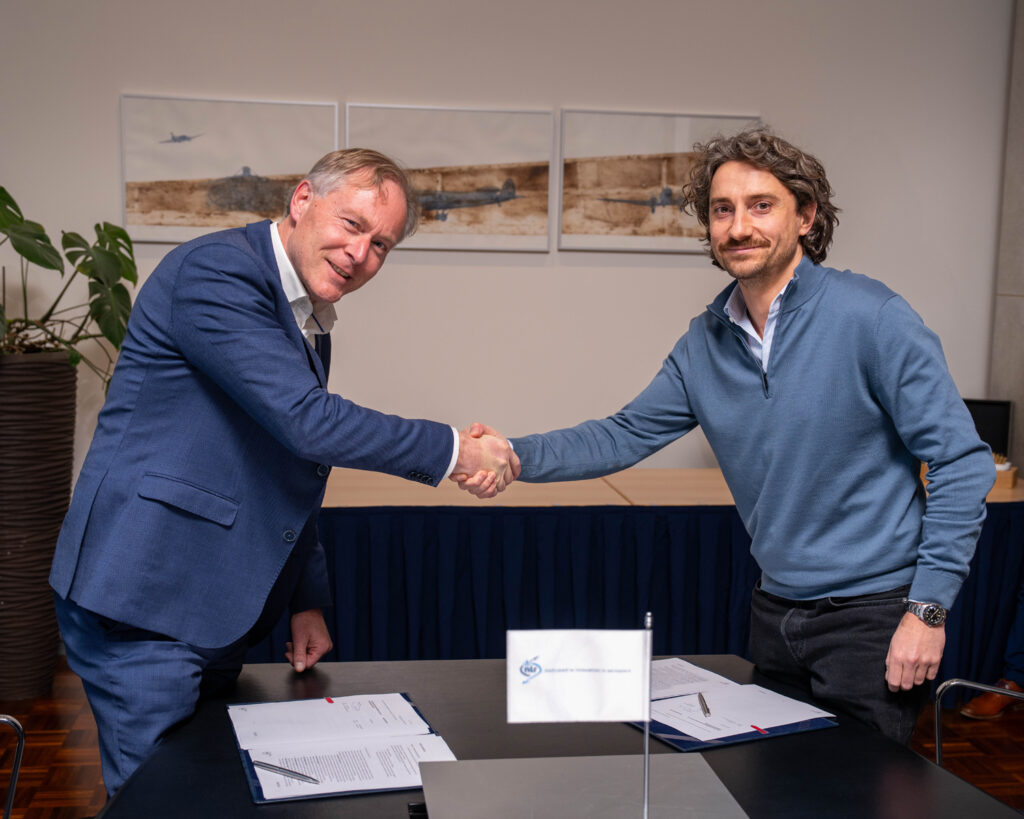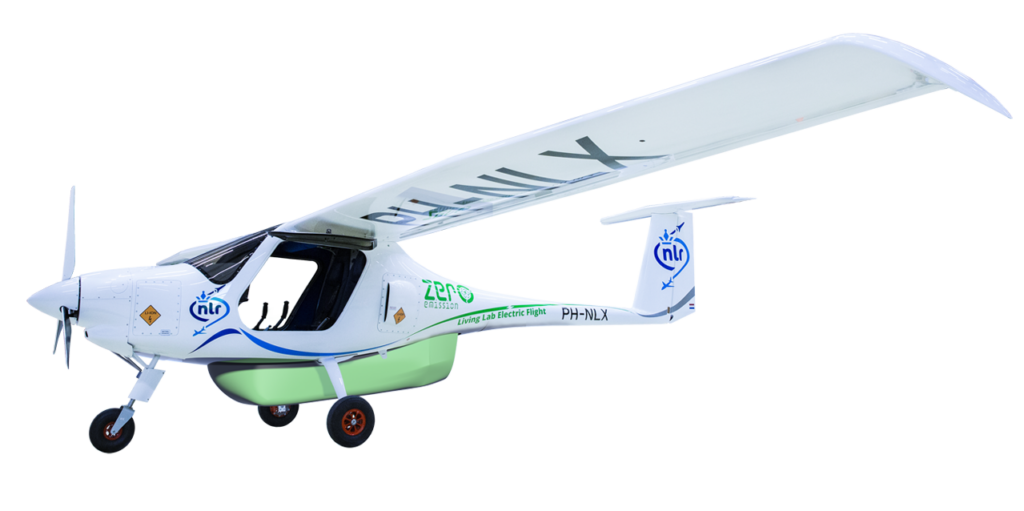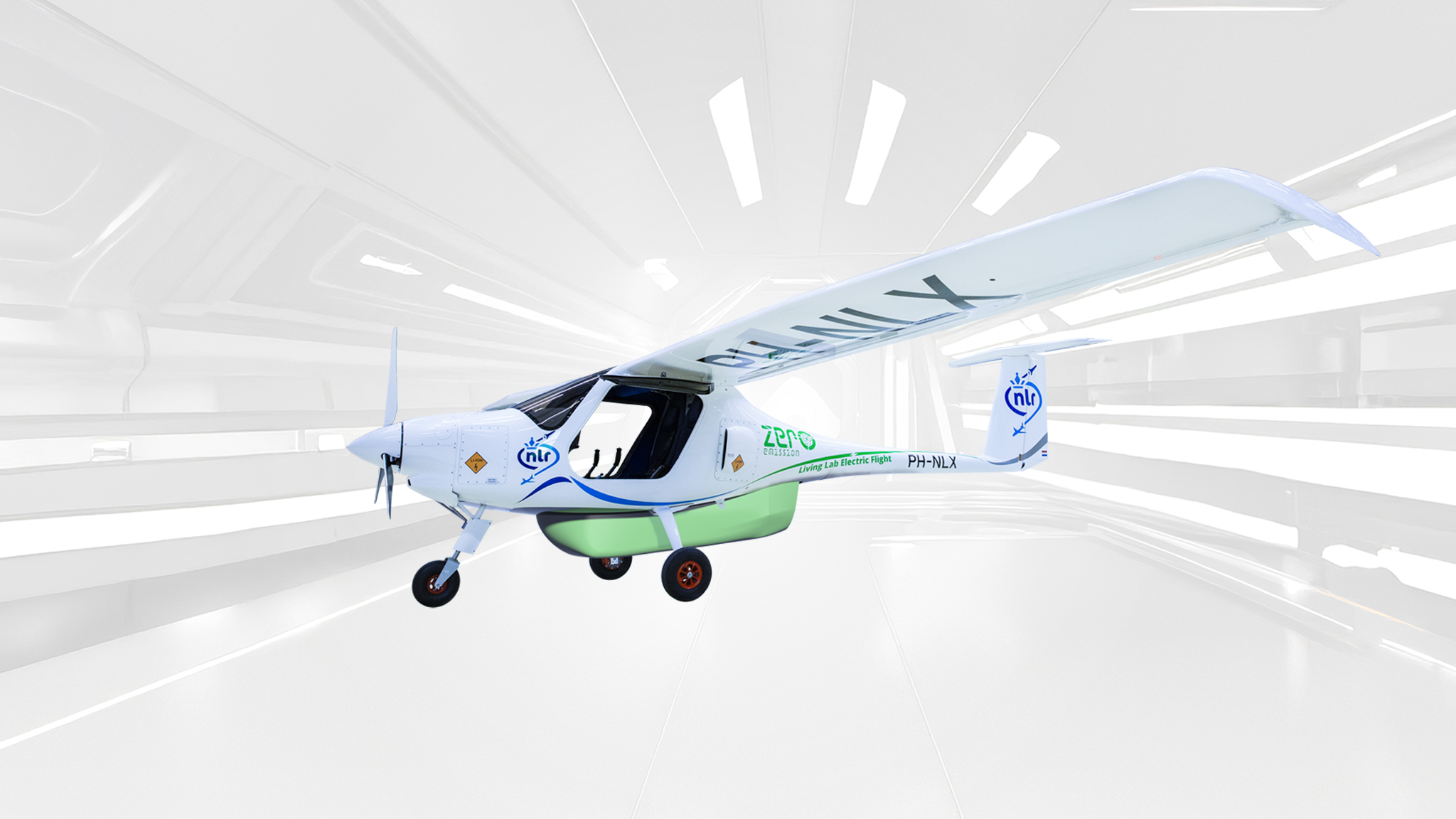NLR aims to achieve manned flight on liquid hydrogen in the near future. To make this possible, NLR will modify its electric-powered research aircraft, the Pipistrel Velis Electro, to include a hydrogen propulsion system. A critical element is the fuel cell system, which Zepp.solutions will develop. Zepp, a Dutch SME, has years of experience in hydrogen and fuel cell technology and is specialized in developing fuel cell systems.
Sustainable aviation
This agreement makes a significant contribution to the showcase of the NLR programme ‘Climate-Neutral Aviation‘, which focuses on the development of innovative and sustainable technologies with the goal of making aviation climate-neutral by 2050.
The new collaboration between NLR and Zepp gives substance to a shared focus on taking concrete steps towards sustainable aviation within the Dutch aviation ecosystem. Zepp has the ambition to develop fuel cell systems for aviation and can make a significant contribution with this collaboration. As a launching customer in this sector, NLR offers Zepp the opportunity to demonstrate and further develop its technology. The system that Zepp will develop will be integrated into the Pipistrel. This small electric aircraft provides NLR with the opportunity to demonstrate innovative technologies.

Demonstration flight
Zepp will not only develop the fuel cell system but will also be involved in its integration into the Pipistrel and all test activities up to the demonstration flight. This approach ensures that we make optimal use of each other’s knowledge and expertise, increasing the chances of success of the demonstration flight.
Arjen Kloosterman, NLR project leader of the showcase: “NLR’s goal with this project is to gain knowledge and experience with the development and integration of hydrogen components and propulsion systems for manned aviation. The greatest challenges, apart from physical integration, are the airworthiness and safety aspects associated with the introduction of hydrogen on board an aircraft. The entire process, up to the demonstration flight planned for 2026, will provide us with valuable knowledge and insights for the integration of hydrogen technology and will form a basis for further developments and the implementation of this technology in the aviation sector. The collaboration with Zepp is an essential step for us and will make a significant contribution to the KLV showcase of NLR”.
Jan Bot, co-founder of Zepp.solutions, agrees: “Our fuel cell technology has already proven itself in various sectors. We bring a lot of knowledge and experience to the development of efficient and compact fuel cell systems. However, aviation presents entirely different challenges. This collaboration, and the opportunity to learn from each other, is therefore extremely valuable. In the development of the hydrogen system for the Pipistrel, we will not only demonstrate the possibilities of hydrogen in aviation together with NLR but also learn lessons that can be of great value to this sector”.

This research is being partially conducted within the research and innovation programme ‘Aviation in Transition’ (LiT), which is co-funded by the National Growth Fund of the Dutch government.



